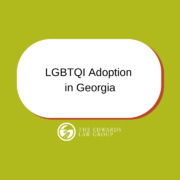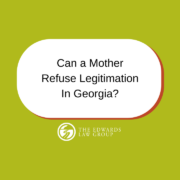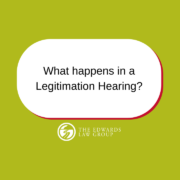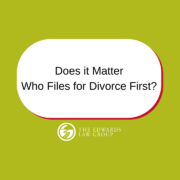LGBTQI Adoption in Georgia
The journey to parenthood for LGBTQI couples has evolved significantly over the years, providing more opportunities for family building. However, LGBTQI adoption rights and the legal framework surrounding them can still pose challenges. This article delves into the complexities and legalities of LGBTQI adoption, focusing particularly on Georgia, and offers a guide to navigating the process.
Overview of LGBTQI Adoption Rights
Adoption rights for LGBTQI parents have seen considerable progress, especially following landmark rulings like Obergefell v. Hodges, which legalized same-sex marriage nationwide. This decision has made it easier for same-sex couples to adopt children, either jointly or as stepparents. However, while marriage equality is established, the battle for equal parentage rights continues. Non-biological parents often still need to undertake legal steps, such as second-parent, or step-parent adoption, to secure their parental rights fully.
Challenges Faced by LGBTQI Couples
Despite the progress, LGBTQI couples may encounter unique challenges in the adoption process. These include potential biases and discrimination, especially in more conservative areas, and the lack of clear legal precedents in some states. Additionally, international adoption remains difficult due to restrictions imposed by other countries. LGBTQI couples must navigate these hurdles with the help of knowledgeable and supportive legal counsel to ensure their rights are protected.
Legal Framework for LGBTQI Adoption
Adoption Laws in Georgia
Georgia’s adoption laws offer various pathways for LGBTQI couples to grow their families. Couples can adopt jointly or pursue second-parent adoption if one partner is the biological parent. The Equitable Caregiver Act in Georgia also provides legal recognition for non-biological parents who play a significant role in a child’s life, enabling them to seek custody or visitation rights.
Federal vs. State Laws
While federal rulings like Obergefell v. Hodges have paved the way for greater acceptance and rights for LGBTQI couples, state laws still play a crucial role in adoption proceedings. In Georgia, the absence of specific laws governing LGBTQI adoption means couples must often rely on general adoption laws, which can vary in their application and interpretation. It is vital for LGBTQI parents to stay informed about both federal and state legal landscapes to ensure their rights are safeguarded.
Recent Legal Changes
Recent legal developments have further shaped the landscape of LGBTQI adoption. For instance, the introduction of the Equitable Caregiver Act in Georgia marks a significant step toward recognizing the rights of non-biological parents. This law acknowledges the importance of the caregiver-child relationship, irrespective of biological connections, offering more robust protection for LGBTQI families.
Steps in the Adoption Process
Initial Requirements and Eligibility
The adoption process for LGBTQI couples begins with meeting initial requirements and eligibility criteria. Prospective parents must undergo background checks, home studies, and provide references. These steps ensure that the adoptive parents are capable of providing a stable and loving environment for the child.
Legal Procedures and Documentation
Once eligibility is established, the legal adoption process for LGBTQI parents involves several critical steps. This includes filing the necessary legal documents, attending court hearings, and sometimes working with agencies that specialize in LGBTQI adoptions. Legal procedures may vary depending on whether the adoption is joint, second-parent, or through the foster care system. It is essential to work with an experienced family law attorney who understands the nuances of LGBTQI adoption in Georgia.
Post-Adoption Support and Resources
After the adoption is finalized, support and resources are crucial for the well-being of the new family. Post-adoption support may include counseling, parenting workshops, and connecting with local LGBTQI family groups. These resources help families navigate their new roles and address any challenges that arise, ensuring a smooth transition and ongoing stability.
Looking to Expand your Family?
LGBTQI adoption in Georgia, while promising, still presents various legal and societal challenges. Understanding the legal framework and being prepared for the adoption process are essential for LGBTQI couples looking to expand their families.
By staying informed about their rights and working with knowledgeable legal professionals, LGBTQI parents can successfully navigate the complexities of adoption and build loving, supportive homes for their children. Our attorneys have years of experience in LGBTQI Family Law. If you’re ready to expand your family, reach out today.











